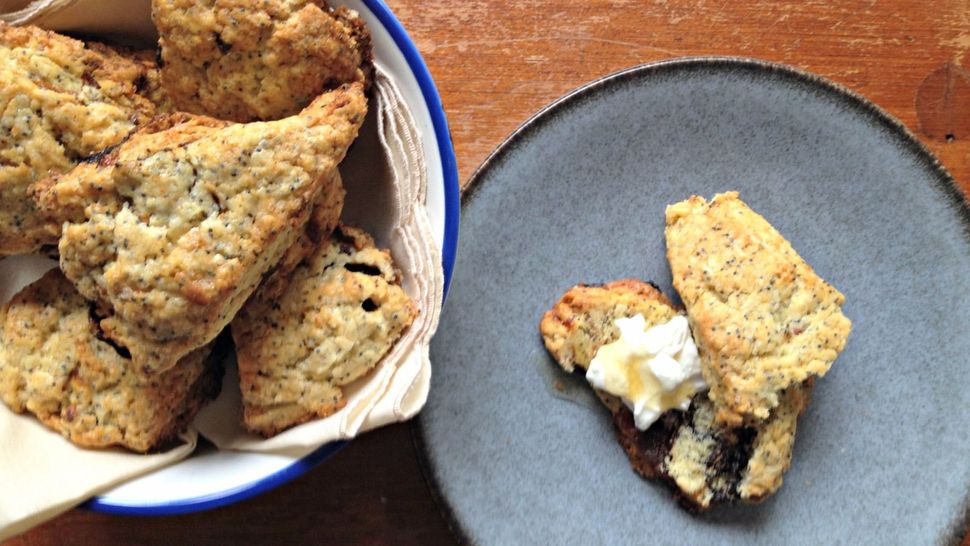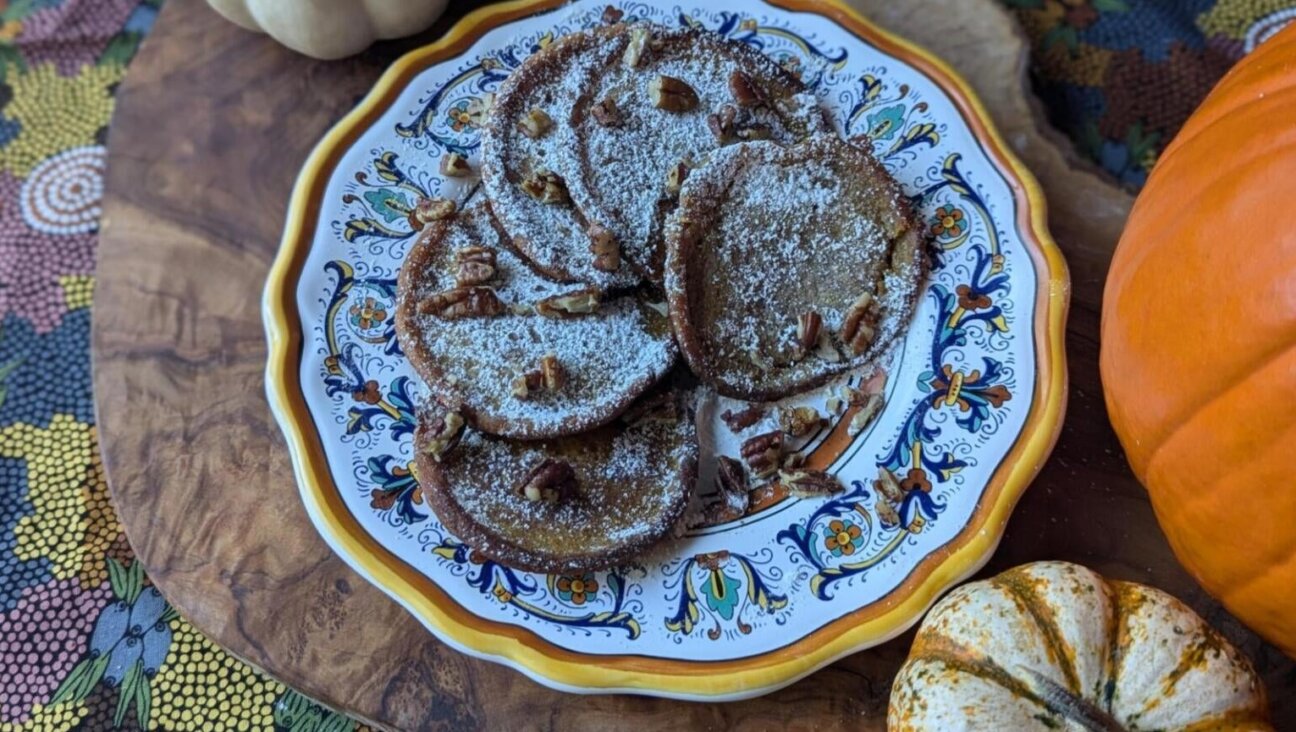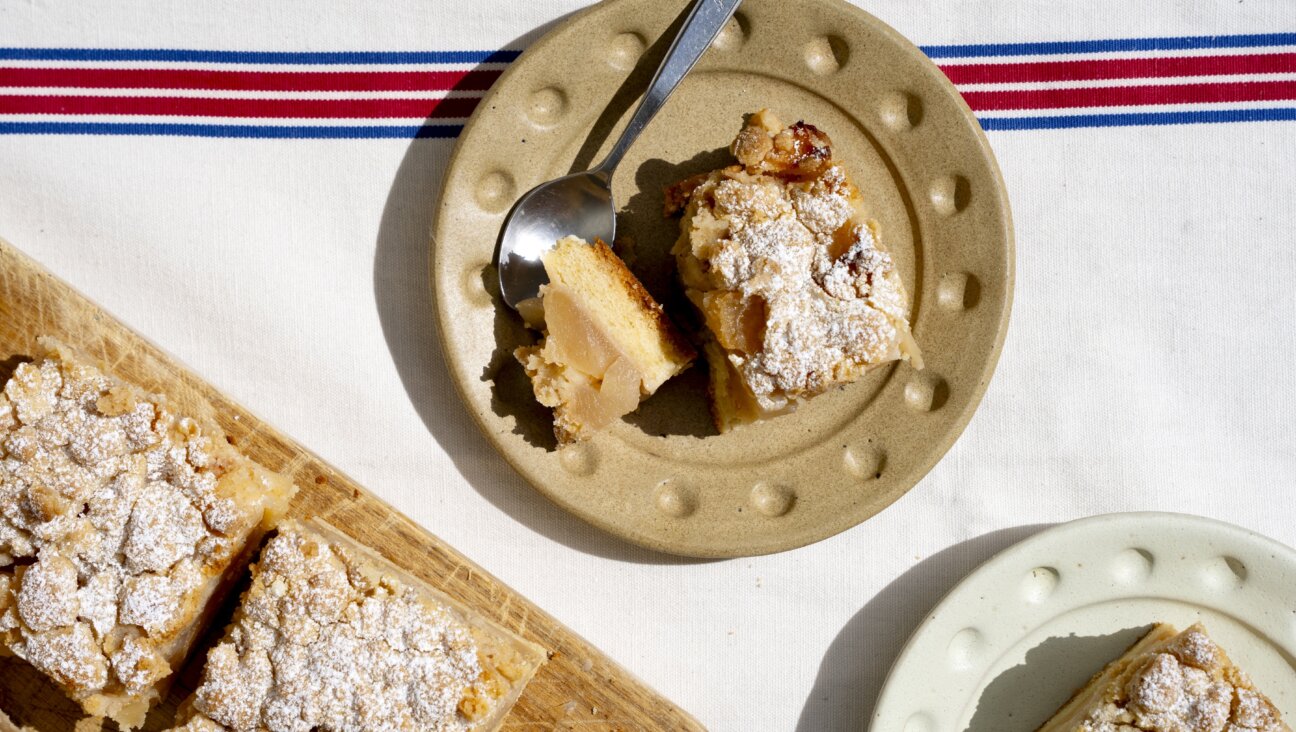Prune-Poppy Scones for Purim

Image by Leah Koenig
This Purim, let’s move beyond the cookie, bringing a touch of the holiday to the breakfast table with a delectable, easy-to-make breakfast pastry.
Last weekend, at a friend’s potluck, Max pointed emphatically to a plate on the table and said “cookie.” The fact that the object of his desire was actually a plate of biscuits — decidedly savory and very little like the actual cookies he probably wanted — hardly mattered. I get that, I do. Cookies, whether real or imagined, hold an almost mythical power over us. Just ask Cookie Monster.
And yet, I’d like to propose that this Purim we move beyond the cookie. This time of year I crave a buttery, jam-filled hamantaschen as much as anyone. But instead of baking a batch and calling it a holiday, why not embrace a “yes, and…” mindset and use them as a springboard for other Purim baking?
This year, I propose bringing a touch of Purim to the breakfast table with prune-and-poppy seed scones.
The word hamantaschen is a play off of Haman’s name (the Purim story’s notorious villain), but it is also connected to the old school German confection mohn taschen, or poppy-seed pockets. So in a sense, the inclusion of poppy seeds in a pastry is as emblematic of Purim as the tricornered cookies themselves. As for prunes, the humble (and in my opinion hugely underrated) dried fruit, which in Ashkenazi Jewish cooking is often stewed into a fruit butter called lekvar, goes way back as a filling for hamantaschen.
Riffing off of these flavors, I folded poppy seeds directly into my dough. In addition to a lovely speckled appearance, they add a nutty crunch to the baked scone. I also folded in some jammy prunes, which caramelize beautifully in the oven. Served with a dollop of clotted cream or a pat of butter and a drizzle of honey or maple syrup, Purim breakfast can be very freilich (happy) indeed — hamantaschen entirely optional.
Prune & Poppy Seed Scones
Makes 16 scones
2 cups all-purpose flour, plus more if needed
2/3 cup granulated sugar
2 tablespoons poppy seeds
1½ teaspoons baking powder
1 teaspoon salt
½ cup cold unsalted butter, cut into small pieces
1 cup coarsely chopped prunes
2/3 cup heavy cream, plus more for brushing
1 egg
1) Preheat oven to 375˚ F, and line a large, rimmed baking sheet with parchment paper; set aside.
2) Whisk together flour, sugar, poppy seeds, baking powder and salt. Add the butter and, using your fingers, pinch the ingredients together until mixture is crumbly and the butter pieces are pea-sized. Add the prunes, tossing them in the flour mixture to coat.
3) In a small bowl whisk together the cream and egg. Make a well in the dry ingredients and pour in wet mixture; stir until a shaggy dough forms. With the heel of your hand, knead the dough in the bowl several times, adding a little more flour if needed, 1 tablespoon at a time, until you have a soft and moist (but not sticky) dough. Divide dough into two equal-sized balls; lay on a lightly floured surface and flatten each into 6-inch diameter rounds (they should be about ½-inch thick. Slice each round into 8 wedges and transfer to the prepared baking sheet; brush tops with a little more cream. Bake until puffed and golden brown, about 25 minutes; transfer to a wire rack to cool. Reheat leftovers in a toaster oven or regular oven.
Leah Koenig is a contributing editor at the Forward and author of “Modern Jewish Cooking: Recipes & Customs for Today’s Kitchen,” Chronicle Books (2015).
















